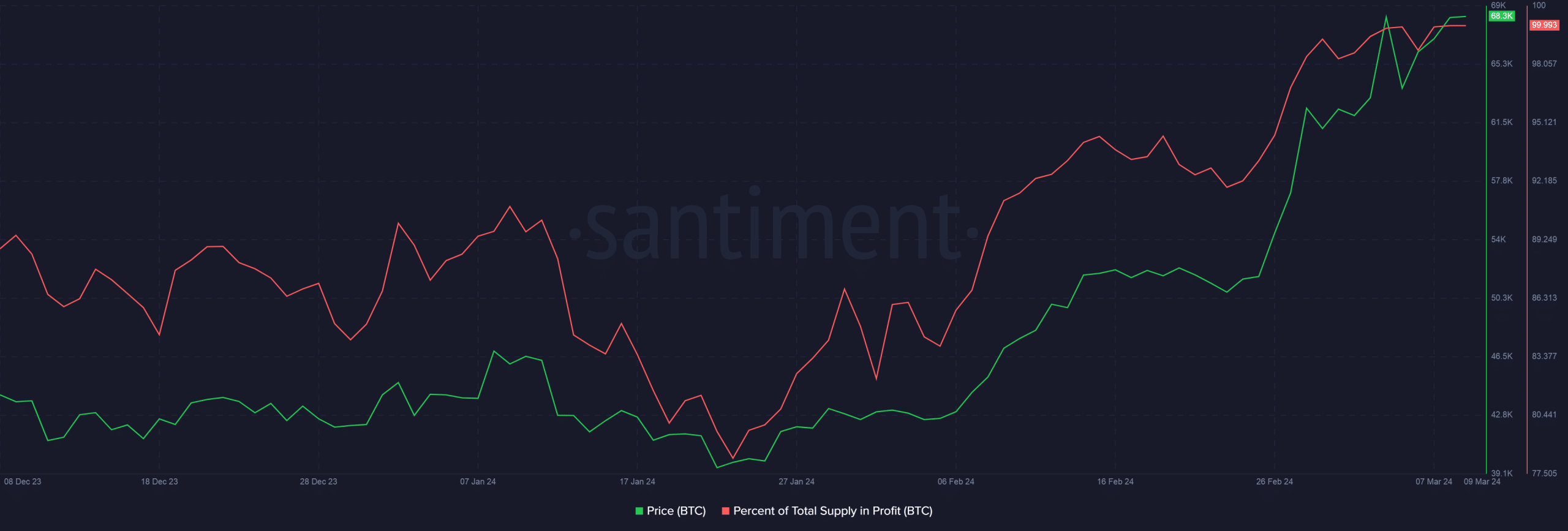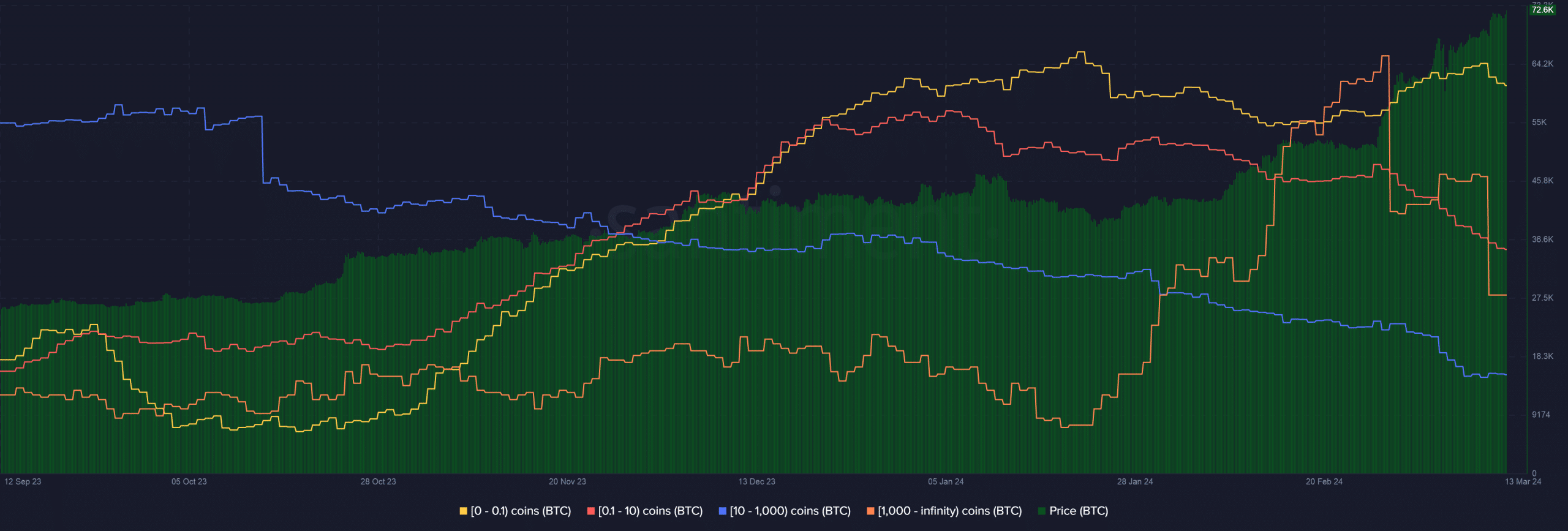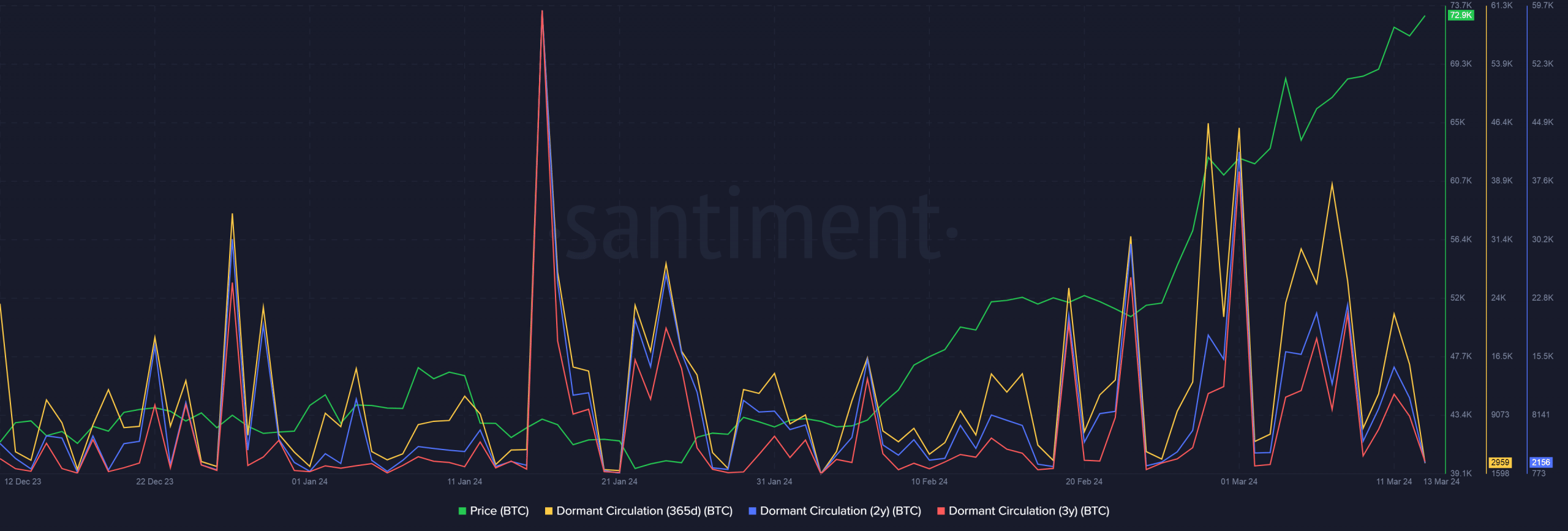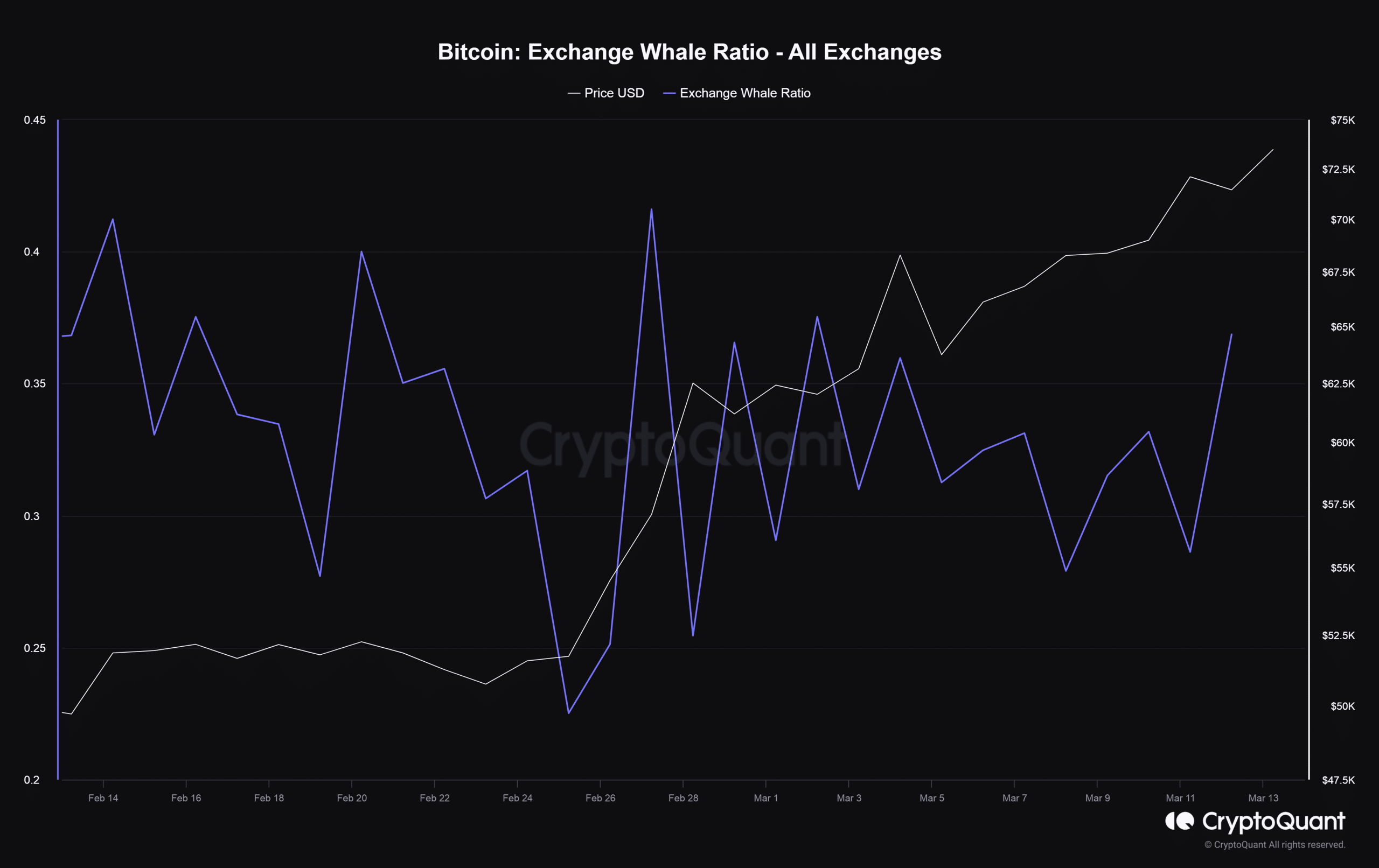- Wallets holding more than 1,000 Bitcoins have fallen by almost 5% in the past two weeks.
- There was a sharp spike in the movement of previously inactive Bitcoins.
Bitcoin [BTC] has hit a new all-time high (ATH) above $73,000 in the past 24 hours, even as an intense battle between bulls and bears unfolded around the crucial level at the time of writing.
The King Coin has risen steadily since reaching the peak of its previous bull cycle, and was up more than 70% since the start of 2024, according to CoinMarketCap.
Due to the price increase, the entire Bitcoin supply was profitable at the time of writing, according to AMBCrypto’s examination of Santiment data.


Source: Santiment
Whale addresses are plummeting
The temptation was so great that even major whale investors couldn’t resist cashing out.
Wallets holding more than 1,000 Bitcoins have fallen by almost 5% in the past two weeks. Additionally, the cohort storing 10 to 1,000 coins also shrank by 0.5% over the same period.
It was highly likely that many of these investors would have placed limit orders slightly above the previous record high of $69,000. When this level was reached, it led to a sell-off.


Source: Santiment
On the other hand, miniature addresses holding less than 0.1 units of BTC are up 0.6% over the past two weeks. This was a sign that private investors are re-entering the market.
The dormant supply is starting to move up the chain
The increased whale dumping can also be linked to the dramatic spike in the movement of previously inactive coins.
AMBCrypto noticed that coins that have not moved in the last 2 to 3 years suddenly started trading in the last two weeks.


Source: Santiment
Many of these investor holders are said to have acquired Bitcoins during the last bull cycle. They patiently waited for price recovery and started distributing as the market turned bullish.
Read Bitcoin’s [BTC] Price forecast 2024-25
The exchange interaction between whales is not alarming
While profit-taking by whales often raises alarms in the broader market, the situation was not yet dire enough to warrant panic.
According to AMBCrypto’s examination of CryptoQuant data, whales were responsible for only 36% of total Bitcoin inflows to exchanges, indicating that whales were not mass dumping coins.


Source: CryptoQuant

